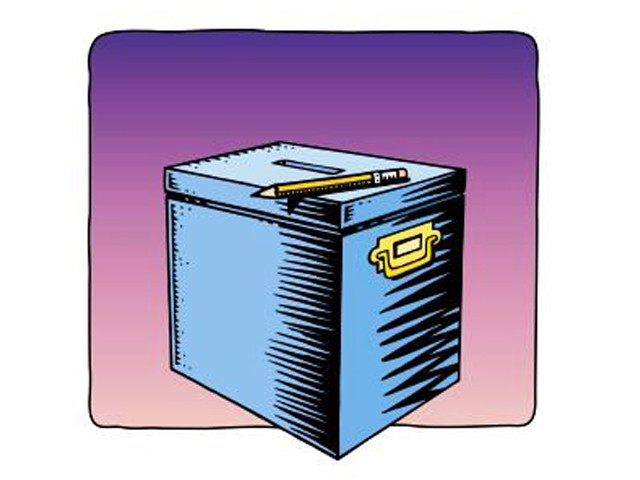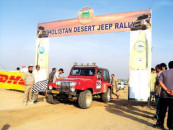Dance of democracy: ‘Aggressive media campaign contributed to BJP victory in India’s 2014 elections’
Conference on 2014 Indian elections and its implications starts at LUMS.

Dance of democracy: ‘Aggressive media campaign contributed to BJP victory in India’s 2014 elections’
He was speaking at a two-day conference, titled The 2014 Indian Elections – Implications for Domestic Politics and Indo-Pakistan Relations, at the LUMS faculty lounge.
The first day opened with a session on an overview of the elections and the political context of Bharatiya Janata Party’s (BJP’s) rise to power.
Dr Sanjay Kumar presented his paper on the overview. He presented statistics demonstrating the growing gap between the Indian National Congress (INC) and the BJP.
One of the factors he presented as key to the BJP’s meteoric rise was an aggressive media campaign. In some constituencies the campaign proved a game changer in Modi’s favour.

Examining the role of the leadership factor in the Lok Sabha elections, Dr Sandeep Shastri of Jain University raised three questions: was this a vote for the BJP, or Modi, or was it the previous government’s lack of performance.
“We often say in India that the real campaign managers for Mr Modi were former prime minister Manmohan Singh and Congress vice president Rahul Gandhi.”
Shastri said the decisive factor towards the BJP’s victory was that it built on its presence in states where it already had a foothold and the nature of electioneering.
Sahas Palshikar presented a paper regarding the ramifications of the BJP’s victory.
He said the party had made history by securing an overwhelming majority in the Lok Sabha for the first time since 1984, when the Indian Nation Congress (INC) had stormed into power following the assassination of Indira Gandhi. He said the BJP had tasted remarkable success in translating votes into parliamentary representation.
Palshikar said the Upper Castes and the Other Backward Classes (OBCs), an umbrella term used by the Indian government to classify castes that are economically and socially underprivileged, and the youth had voted heavily for the party in the general elections.
He said the BJP had also managed to surmount the rural-urban divide in the elections, emerging as a pan-Indian political force.
Palshikar said the party had also made significant inroads into states like Odisha, Andhra Pradesh and Karnataka.Adnan Farooqi presented a paper on opposition parties at the national and state levels. He said that the decline of the INC could be traced back to 1989.
Farooqi said the party’s share of votes polled had dwindled to 19 per cent. This was its worst showing ever. He said this had been the fate of most umbrella parties worldwide with the exception of the African National Congress. He said such parties had difficulty in remaining politically relevant as they struggled to garner support across socio-political vote banks.
He said the INC’s poor showing was the culmination of a trend that had started in 1989. Farooqi said this was due to high levels of centralisation, paucity of internal cohesion and the lack of intra-party democracy. The emergence of the Bengal-based Trinamool National Congress and the Maharashtra based Nationalist Congress Party, the creation of ‘coalitions of convenience’ and the lack of popular support at the state level epitomised this.
AK Verma presented a paper analysing the BJP’s resounding success in Uttar Pradesh (UP) during the elections where it won 73 out of 80 Lok Sabha seats.
Verma said the party had made gains in every social denomination, including Muslims. For the first time its vote-share in rural areas had exceeded that in urban UP, he said.
Published in The Express Tribune, November 28th, 2014.



















COMMENTS
Comments are moderated and generally will be posted if they are on-topic and not abusive.
For more information, please see our Comments FAQ